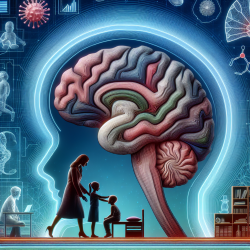The COVID-19 pandemic has brought unprecedented challenges to healthcare workers worldwide. Among these challenges is the heightened risk of moral injuries—psychological distress resulting from actions that conflict with one's ethical beliefs. A recent study titled "Predict, prevent and manage moral injuries in Canadian frontline healthcare workers and leaders facing the COVID-19 pandemic: Protocol of a mixed methods study" provides valuable insights into understanding and mitigating these injuries.
What Are Moral Injuries?
Moral injuries occur when individuals engage in, witness, or fail to prevent actions that violate their moral or ethical codes. Traditionally studied in military contexts, moral injuries are now recognized as a significant concern for healthcare professionals. The pandemic has exacerbated conditions leading to moral injuries, such as resource shortages, ethical dilemmas in patient care, and high emotional demands.
The Study's Objectives
This mixed-methods study aims to:
- Identify workplace events that may cause or reduce moral injuries.
- Predict the risk and severity of moral injuries using a disease prevention model.
- Identify biological markers associated with stress and moral injuries.
- Create preliminary guidelines for organizational practices to mitigate these injuries.
Key Findings and Implications
1. Workplace Events and Moral Injuries
The study highlights specific workplace events that can trigger moral injuries among healthcare workers. These include high emotional demands, ethical dilemmas due to resource constraints, and organizational pressures. Recognizing these triggers is crucial for developing targeted interventions.
2. Predictors of Moral Injury Risk
The research identifies psychosocial stressors at work as key predictors of moral injury risk. These stressors include high workloads, low social support, and emotional demands. Understanding these factors can help practitioners anticipate and address potential moral injuries before they escalate.
3. Biological Markers of Stress
An innovative aspect of the study is its focus on identifying biological markers associated with stress and moral injuries. By analyzing blood samples from participants, researchers aim to uncover physiological responses to workplace stressors. These findings could pave the way for objective assessments of stress levels in healthcare settings.
4. Role of Self-Compassion
The study underscores the importance of self-compassion as a protective factor against moral injuries. Practicing self-compassion can enhance resilience to occupational stress and improve overall well-being among healthcare professionals. Incorporating self-compassion training into professional development programs could be a valuable strategy for reducing the impact of moral injuries.
Toward Better Organizational Practices
The research emphasizes the need for organizational changes to reduce psychosocial stressors at work. Implementing supportive leadership practices, fostering an ethical culture, and promoting psychological safety are recommended strategies to mitigate the risk of moral injuries.
A Call for Further Research
This study provides a foundation for further research into moral injuries in healthcare settings. Practitioners are encouraged to explore additional ways to predict, prevent, and manage these injuries through continued research and collaboration with interdisciplinary teams.










